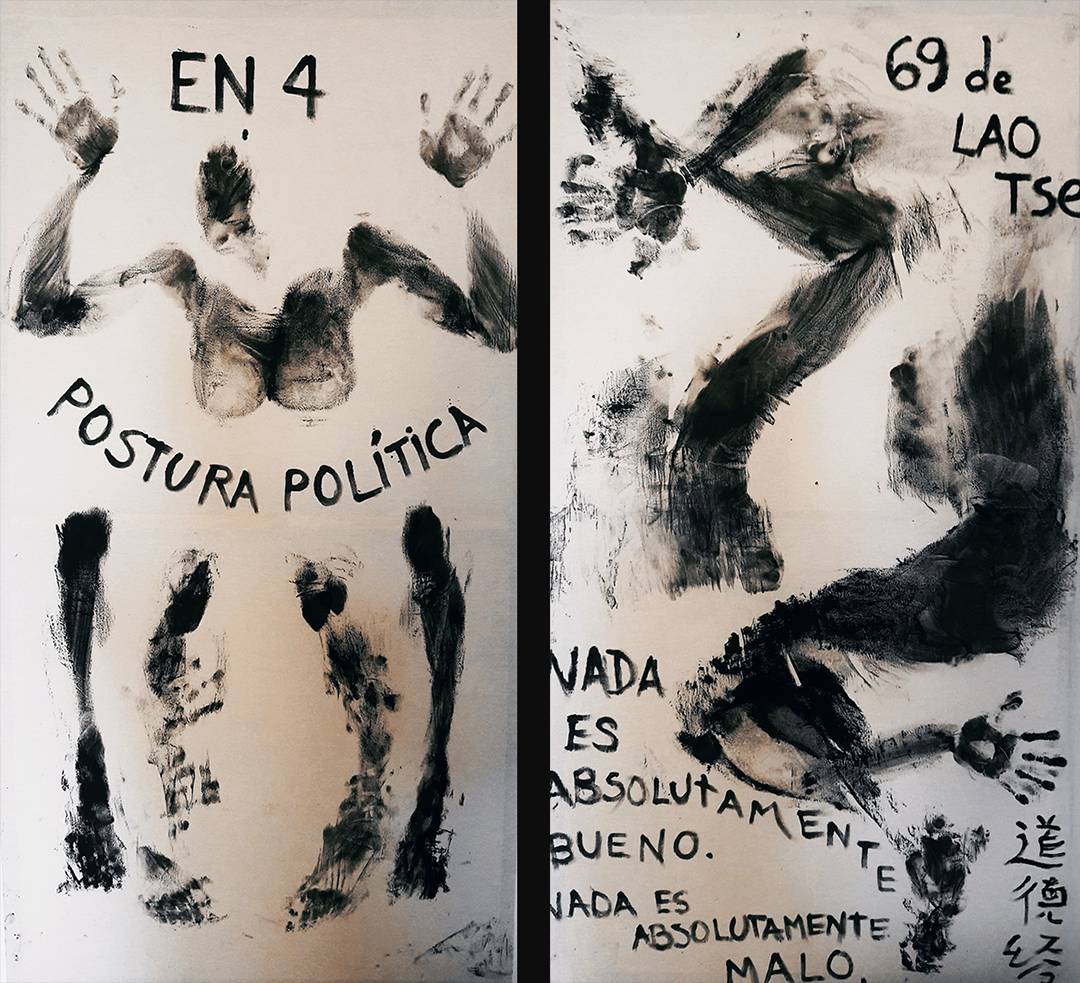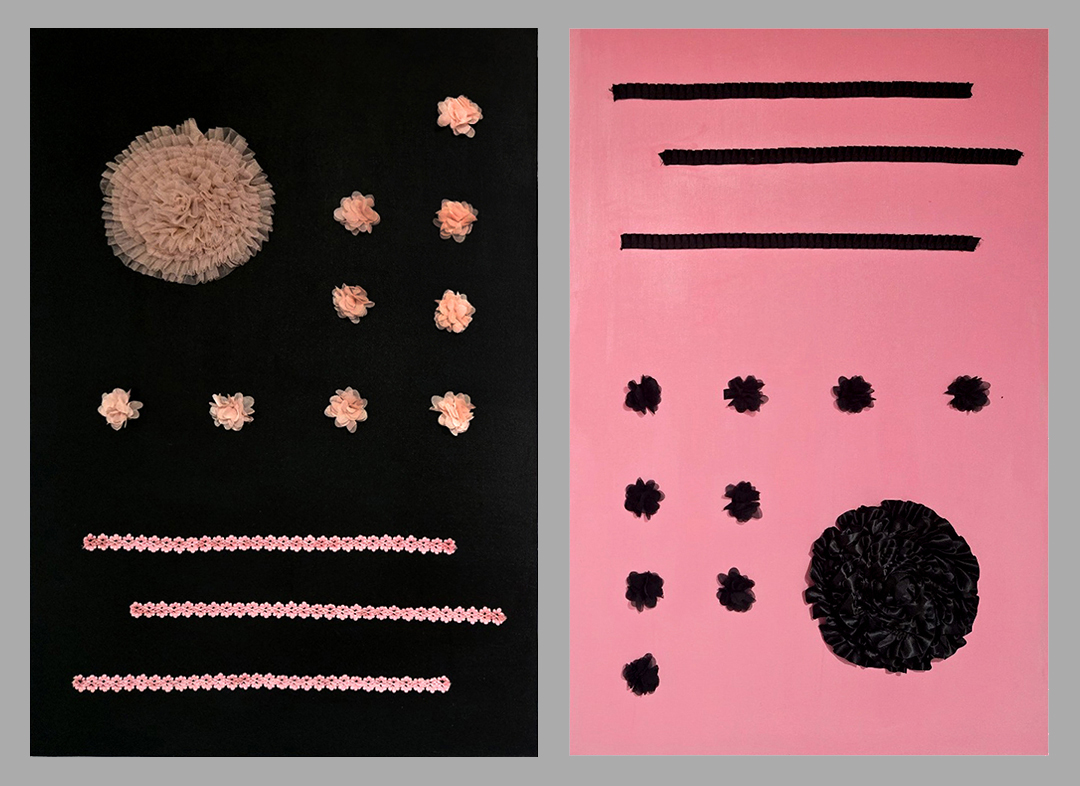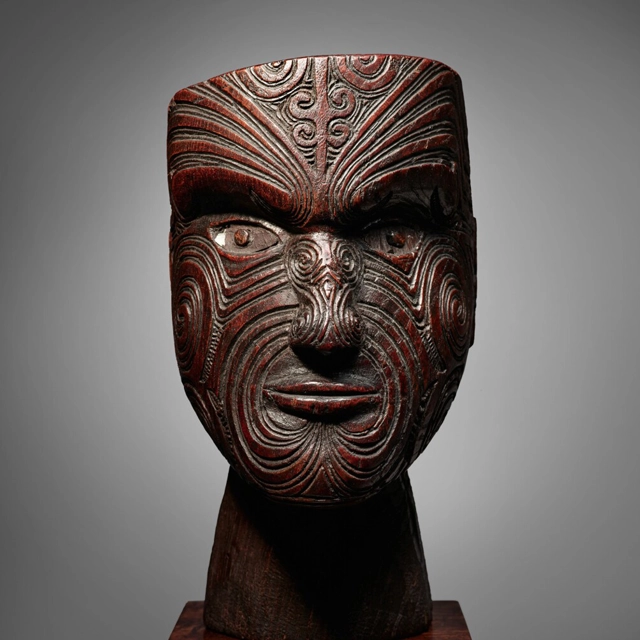
THE
ANNEX
NEWS





Politics as Form in the Work of Kina Matahari

Within Next to Nothing, we will present an exhibition whose name is, precisely—and paradoxically—Next to Nothing. The Annex Gallery will host a pop-up show by the Cuban multidisciplinary artist Claudia Ricardo, known in the Cuban art circuit under the pseudonym Kina Matahari.
Next to Nothing explores how tensions between opposites generate new realities—paradoxical thought, an oxymoron that, from within dilemma, produces a result free of ambiguity. Here, contradiction itself becomes the discourse that underlines it. The work also reflects on a tangential and inevitable existence: on the void, on absence, and on the silence that remains when noise subsides. These canvases stage the frictions between emptiness and plenitude, erasure and visibility, vulnerability and affirmation.
Kina’s formal expression, in its execution, should not be read as detachment from heterodoxy. It is both a statement and her natural mode: “This is simply how I paint a circle—no more, no less. It is the circle Kina Matahari paints.” And Kina painting a geometric figure is a gesture charged with autobiographical reference, critical memory, and deliberate homage.
Her simple, minimalist figures—resolved in a single motion, like Eastern calligraphy—bear no relation to Euclidean geometry; they are identitarian. And if any reader insists on the mathematical, let it be said: it would be Lobachevskian geometry, the kind that proves space can curve to infinity, and that the straight line is not the only path between two points. From this affirmation of belonging, her work enters the territory of symbolic resistance.

Lao Tzu’s 69, Political Posture, and Inverted Lotus. From the Artistic Microbrigade Series, 2020
Acrylic on canvas | 59 x 31½ inches (each)
Form and Power: Between the Body and the System
The series Lao Tzu’s 69, Political Posture, and Inverted Lotus (2020) establish one of the central conceptual threads of the exhibition: the relationship between power and the body. Alluding to Yves Klein’s Anthropometries and to the ideological interventions of the Cuban artist Lázaro Saavedra, this triptych fuses Western and Cuban genealogies to question domination—physical, political, and cultural.
Kina invokes Oscar Wilde’s phrase: “Everything in the world is about sex, except sex. Sex is about power.” The work thus frames itself as an exploration of binaries: dominated/dominant, passive/active, popular culture/high culture, citizen/government.
By painting her own body and pressing it against the canvas, Matahari transforms flesh into imprint, gesture into testimony. The act becomes performative and subversive: a feminist reappropriation of authorship. In this way, the artist embodies the mantra “the personal is political”, turning her canvas into a battlefield where pleasure and protest collide.

Tying to Release, 2025
Shibari and acrylic on canvas | 24 x 36 inches
Censorship, Constraint, and Release
In Tying to Release (2025), the canvas becomes a metaphor for restriction. Bound with shibari knots, the surface appears trapped, evoking the artist’s lived experiences of censorship in Cuba. The paradox of the title—to bind in order to release—articulates the duality between oppression and emancipation.
The knots, at once violent and delicate, evoke submission and protection, desire and suffocation. This piece underscores Matahari’s enduring preoccupation with freedom—artistic, bodily, and social. It recalls the episode of a censored triptych, when curators demanded that certain “problematic” sections be covered. By integrating the act of binding into the work itself, the artist transforms censorship into form, revealing how the attempt to silence can, paradoxically, expose the very structures of control.

Project for the Silent Scream Series, 2025
Originals in acrylic on canvas | 11 x 14 inches (each)
Memory, Origin, and Symbol
The motif of the tinajón—a large earthenware vessel for storing water and emblem of the artist’s hometown, Camagüey, Cuba—reappears throughout Silent Scream IV–IX (2025) and Tinajon’s Water (2025). Once dismissed by the artist as an unnecessary appeal to folklore, the symbol now returns as a container of memory and belonging.
These works revisit identity not through nostalgia, but through confrontation. The tinajón becomes at once a reservoir of history and a metaphor for resistance under pressure. Painted in intense shades of pink and black, the pieces weave together personal memory and collective trauma. They evoke the artist’s internal negotiation between origin and distance, between the tenderness of home and the violence of exile. The repeated circular forms echo the geometry of the tinajón, linking it to the formal language of her abstractions.

Inner Duality Diptych, 2025
Fabric and acrylic on canvas | 24 x 36 inches (each)
Gender, Tenderness, and Duality
The Inner Duality Diptych embodies the central dialectic of the exhibition: the tension between tenderness and terror. Pink and black—colors that traverse much of Matahari’s recent work—become codes of inherited gender and rebellion.
The artist embraces the pink once imposed upon her, reclaiming it as a territory for reflection on femininity. The inclusion of lace and fabric ties the work to maternal memory—her mother sewing dresses for dolls—and to the broader history of women’s labor as both aesthetic and political gesture.
In these two canvases, duality is not opposition but coexistence. The yin-yang balance dissolves into ambiguity: softness can contain strength; beauty can conceal violence.

Project for Neat, 2025
Original in acrylic on canvas | 20 x 24 inches
Language and Reduction
In Neat (2025), abstraction encounters semiotics. A soft pink field holds a white oval and a black circle—forms seemingly simple yet dense with meaning. The title, borrowed from bourbon terminology, refers to the culture of Kentucky, where the artist now resides. The phrase served neat becomes a metaphor for clarity and rawness: facing reality without dilution. Beneath its minimalist composition runs a subtle political subtext: the black circle represents the proportion of the Hispanic community within Louisville’s population. Here, formal minimalism becomes social commentary. The painting’s elegance conceals a coded reflection on belonging and difference, community and invisibility.
Next to Nothing (Casi nada) has been postponed; the new opening date will be announced once confirmed.
The Annex Gallery
1310 Pendleton St, Cincinnati, OH 45202
Cincinnati, OH

Pieces ready for the lovely journey between Louisville and Cincinnati.



It is generally understood that national museums ought to be the natural custodians of their cultural memory. Spaces where the history of national art is presented in an ordered and intelligible form. Where foundational images can still be contemplated. Yet, primarily for reasons of funding, an increasing number of state institutions...


